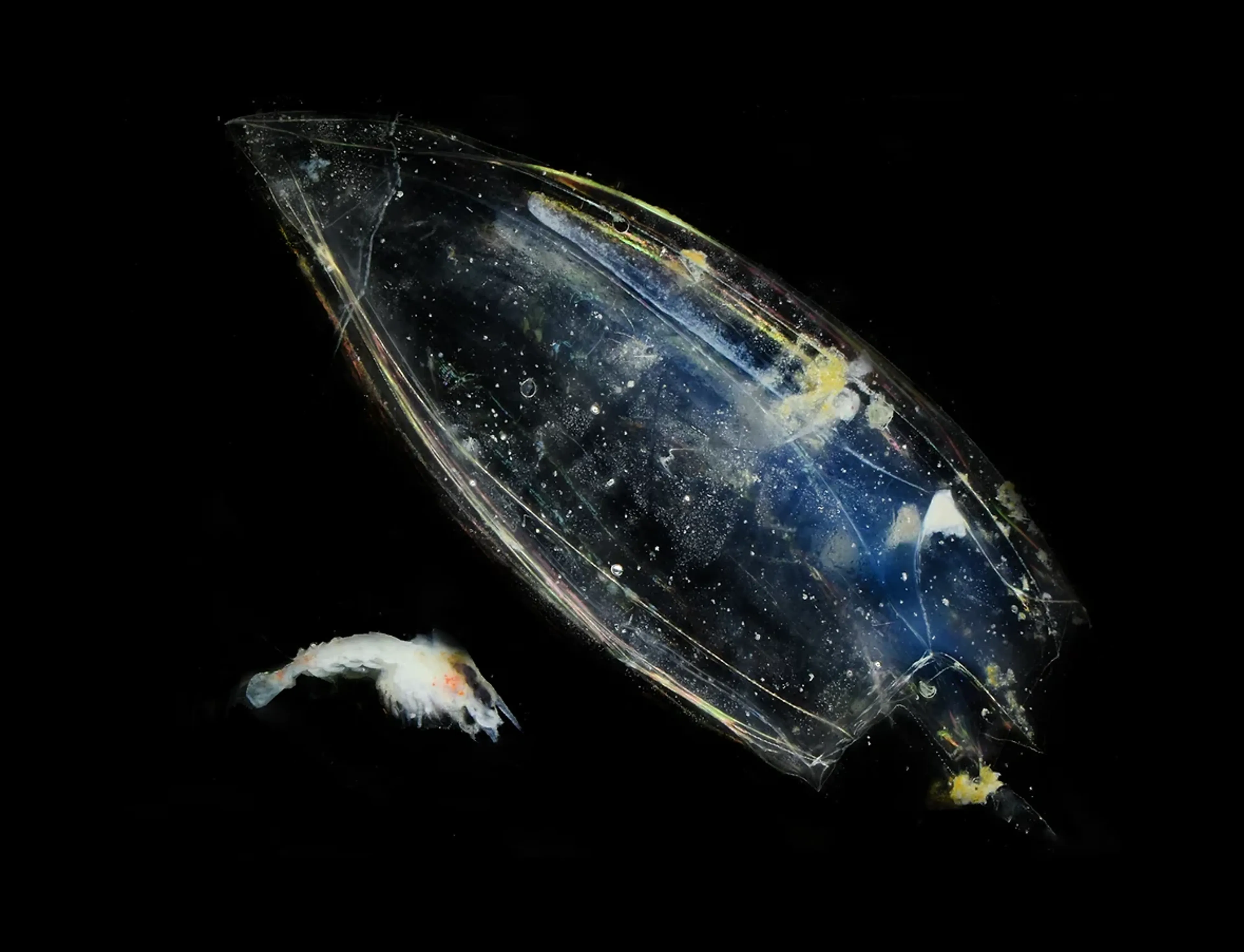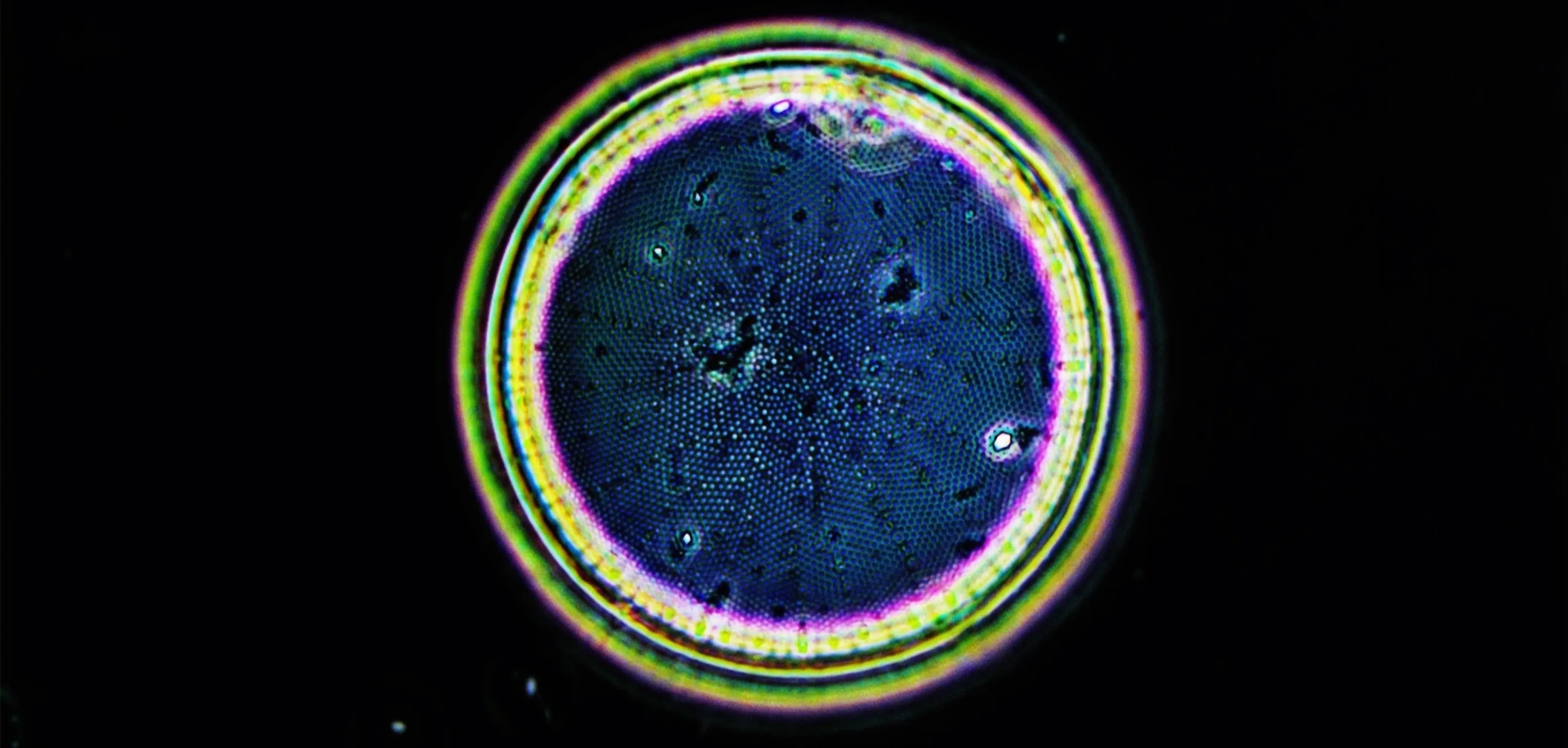Mobilis in Mobili
Drifting with/in planktonic seas
The practice-based research project Mobilis in mobili–Drifting with/in planktonic seas (WT) (supervised by Dr. Kirschner, ZHdK and Prof. Dr. Harrasser, University of the Arts Linz) delves into the intricate realm of phytoplanktonic entities, unraveling their significance as keystone species within planetary cycles. Focused on Phytoplankton (greek φυτόν [phytó], ‚plant‘; πλαγκτός [planktos], 'drifter‘) as a vital part of an intricately balanced system, the project is indicating effects of climate change and ocean acidification to foster a connected 'plant-thinking' (Marder, 2013).
Through amplifying the importance of these species and its connection to global ecological networks, Oestreicher’s practice of spatial installations including converted oceanographic and biologic devices (e.g. drifters as tools, diving regulators and photobioreactors as exchange interfaces, 'Mesokosmen' as observators) makes invisible processes perceptible.

By attuning and wit(h)nessing processes in wet labs, which include both open water environments and traditional biology laboratories, the project seeks to comprehend how assemblages around breathing, lightness and becoming-with can point out the effects of oceanic and global changes. This interdisciplinary initiative prompts us to reconsider the intersection of scientific and artistic methods and to develop practices of 'care' (de la Bellacasa, 2017) —a mindset crucial for navigating precarious times. With immersive, multi-sensorial translations of marine biologists’ tools, the role of the human is transformed from thinking about to thinking and designing with these plant drifters in mobility.

The first interim steps and results have already been presented at international conferences, such as the 'design promoviert'- colloqium of DGTF, 2024, the 'More than planet: Ocean space ocean' symposium as satellite of ISEA 2023, the 18th IASESP Conference 'Designing Environments' 2023, the IxDA EduSummit 2023 'Designing Undefined Perspectives', or the Swiss Design Network Conference 2022 'counterparts - Design beyond the human'.